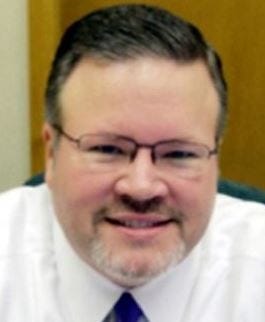
It’s funny how five decades have whitewashed the memory of the man who was gunned down outside his hotel room in Memphis, Tennessee, 50 years ago this week.
Dr. Martin Luther King Jr. was in Memphis to rally for sanitation workers who were on strike.
Somehow in 2018, people see Malcolm X as a troublemaker and King as a halo-wearing bridge builder who led the civil rights movement with a sweet smile stretched across his face. King was fighting on the side of the angels, but he was anything but a meek and mild character that people tend to remembered today.
Yes, King had a dream and he had been to the mountaintop. His speeches that have become the headlines of the movement he led have an overwhelmingly positive message of hope.
But don’t think for a moment that the man who has a beautiful monument erected in his honor in Washington D.C. was always as widely beloved.
Just five years before his assassination, King was jailed in Birmingham, Alabama, for violating the city’s rules on mass demonstrations. Of course, the people rallied to his rescue, right? He was the good guy, after all.
Not exactly.
Eight Birmingham pastors bought an ad in the Birmingham News attacking King for the timing of his protests. It just wasn’t a good time for a rally like this.
He was called an outside agitator. They didn’t like King’s methods.
Of course King realized that a protest that was well-received by those against whom you are protesting isn’t a protest at all.
King wrote a letter from his cell in Birmingham expressing his thoughts on the attacks from his fellow pastors.
It said in part, “We know through painful experience that freedom is never voluntarily given by the oppressor; it must be demanded by the oppressed,” King wrote. “Frankly, I have yet to engage in a direct action campaign that was ‘well timed’ in the view of those who have not suffered unduly from the disease of segregation. For years now I have heard the word ‘Wait!’ It rings in the ear of every Negro with piercing familiarity.”
The best way to kill any movement is to agree with it but delay acting on it. Another crisis will come and the headlines will be washed away by water flowing under the bridge. That is why people always caution those who support gun control that you shouldn’t politicize a mass shooting to push for common sense regulations that might prevent a future mass murder. Those pushing that message always appear to agree that “something” should be done “sometime,” but that time is never now.
King dealt with people who tried to kill his movement with kindness as well. They claimed to be on his side but they just thought he should bide his time and not rush change.
King was not willing to wait for a time when those in power would act on their own.
“I have almost reached the regrettable conclusion that the Negro’s great stumbling block in his stride toward freedom is not the White Citizen’s Council-er or the Ku Klux Klanner, but the white moderate, who is more devoted to “order” than to justice,” King wrote. “Who prefers a negative peace which is the absence of tension to a positive peace which is the presence of justice; who constantly says: ‘I agree with you in the goal you seek, but I cannot agree with your methods of direct action’; who paternalistically believes he can set the timetable for another man’s freedom; who lives by a mythical concept of time and who constantly advises the Negro to wait for a ‘more convenient season.’”
It was true 50 years ago, and it is true today. If you wait for those in power to act on their own time tomorrow will never come. King knew that you had to speak truth to power.
It landed him in jail. It put him in the jaws of attack dogs and at the end of a firehose. It finally cost him his life.
But his actions moved the civil rights movement further than waiting for the right time ever could have.
Kent Bush is publisher of the Shawnee (Oklahoma) News-Star and can be reached at kent.bush@news-star.com.
This article originally appeared on Crestview News Bulletin: MLK Jr. knew there was never a good time for a protest
